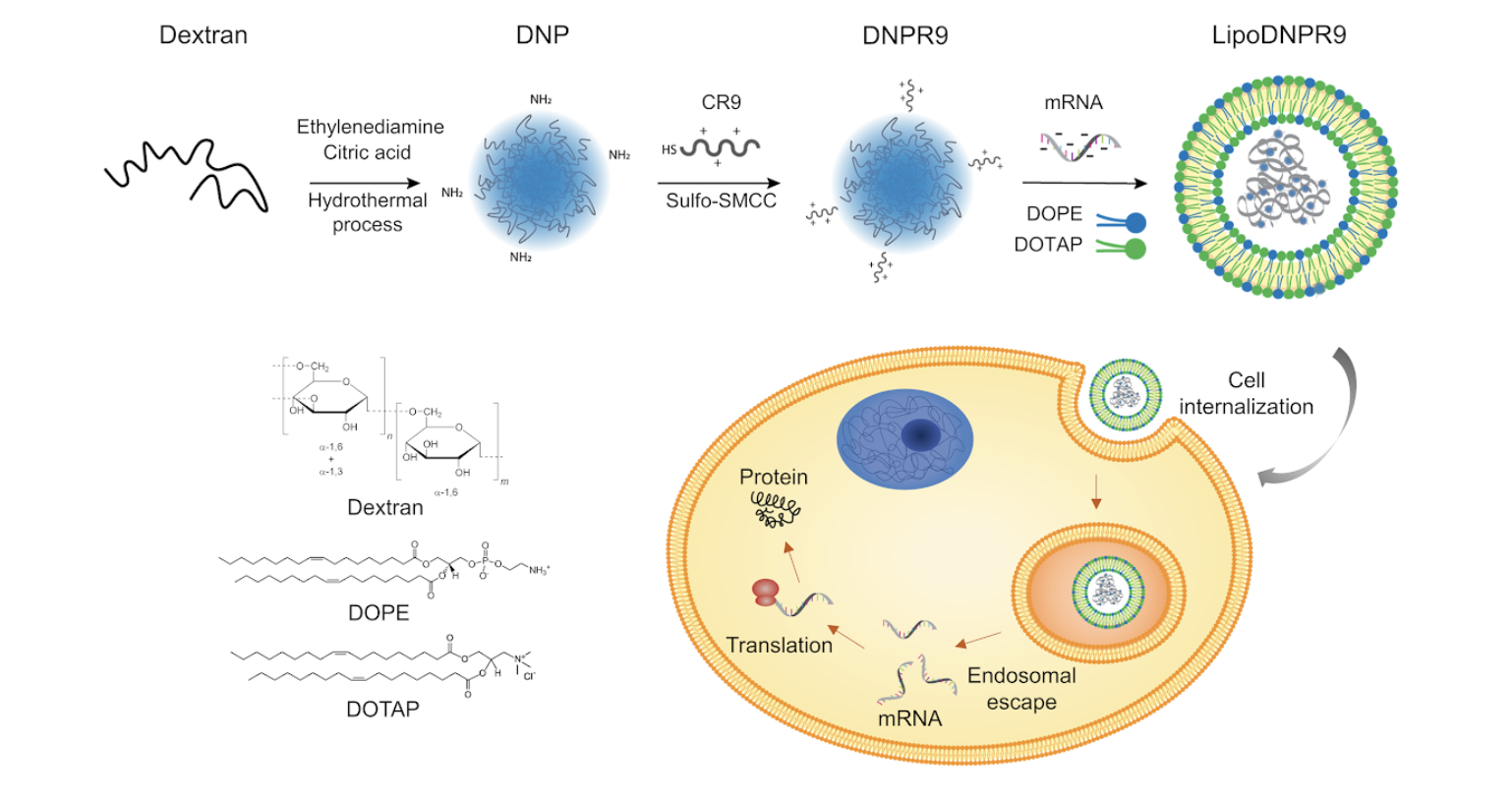Prof. Hyun Jung Chung’s group at KAIST has developed an mRNA delivery platform through the combination of liposomes and cationic nanogels, where the cationic nanogels serve as a condensing material for mRNA prior to encapsulation into liposomes. The use of the condensing material resulted in enhanced internalization, as well as a four-fold increase in transfection efficiency of luciferase mRNA when used to treat A549 cells in vitro compared to the encapsulation of naked mRNA. The enhancement in transfection efficiency was also observed in various cell lines, without causing cytotoxicity. The use of the condensing material in combination with ionizable lipid nanoparticles was also investigated, resulting in a ~55% increase in transfection. This suggests that the method can be universally applied to various lipid formulations. The versatility of the delivery platform was further demonstrated through the enhanced transfection efficiencies of GFP mRNA. The study was published on May 15, 2023 (Effective mRNA Delivery by Condensation with Cationic Nanogels Incorporated into Liposomes, Mol. Pharmaceutics (2023)).
Over the years the application of mRNA for therapeutic purposes has attracted strong interest. However, the effective delivery of mRNA has been a major hurdle. Although various delivery material improvements have been made, with lipid-based nano-formulations being especially promising, there is still need for the development of a more effective system.
“We set out to develop a general system that can be applied to various lipid-based nano-formulations, allowing for an enhanced therapeutic effect of those lipid-based nano-formulations,” said Hyun Jung Chung, the corresponding author and a professor in the Department of Biological Sciences
“Our system shows strong potential to be incorporated into various lipid-based nano-formulations for different therapeutic purposes without affecting the toxicity of those formulations. While further research on the composition of lipid-based nano-formulations would allow the incorporation of beneficial properties such as organ-specific targeting, enhanced mRNA delivery, and increased blood circulation, the combination of our system with the optimized composition can increase the therapeutic effect of the formulation,” remarked Prof. Chung.
“We first started off with optimizing the production of the cationic nanogel. Once we had obtained the cationic nanogel, we studied how much of the nanogel was needed to show improved transfection efficiency of luciferase mRNA. We saw that an overly small or overly high amount would not result in any enhancements. The optimized condition was then confirmed in vitro in three different cell lines. This allowed us to continue examining the versatility of the system by delivering different size mRNA and incorporating the nanogel into a different lipid-based nano-formulation,” noted the first author Nevena Duskunovic, a graduate student in the Department of Biological Sciences at KAIST. “Our system provides a way of increasing the therapeutic efficiencies of existing lipid-based nano-formulations without adding to their toxicity, potentially allowing the reduction of the required amount for a therapeutic effect.”
The work was supported by the National Research Foundation of Korea (2021R1A2C2011763, 2021M3E5E3080383, and 2022R1A4A5028131), Korea Medical Device Development Fund (202011D08), and the Ministry of Health and Welfare (HI22C2010).

Prof. Hyun Jung Chung, Nevena Duskunovic Dept. of Biological Sciences, KAIST
E-mail: hyunjc@kaist.ac.kr
Homepage: http://nanomedicine.kaist.ac.kr






